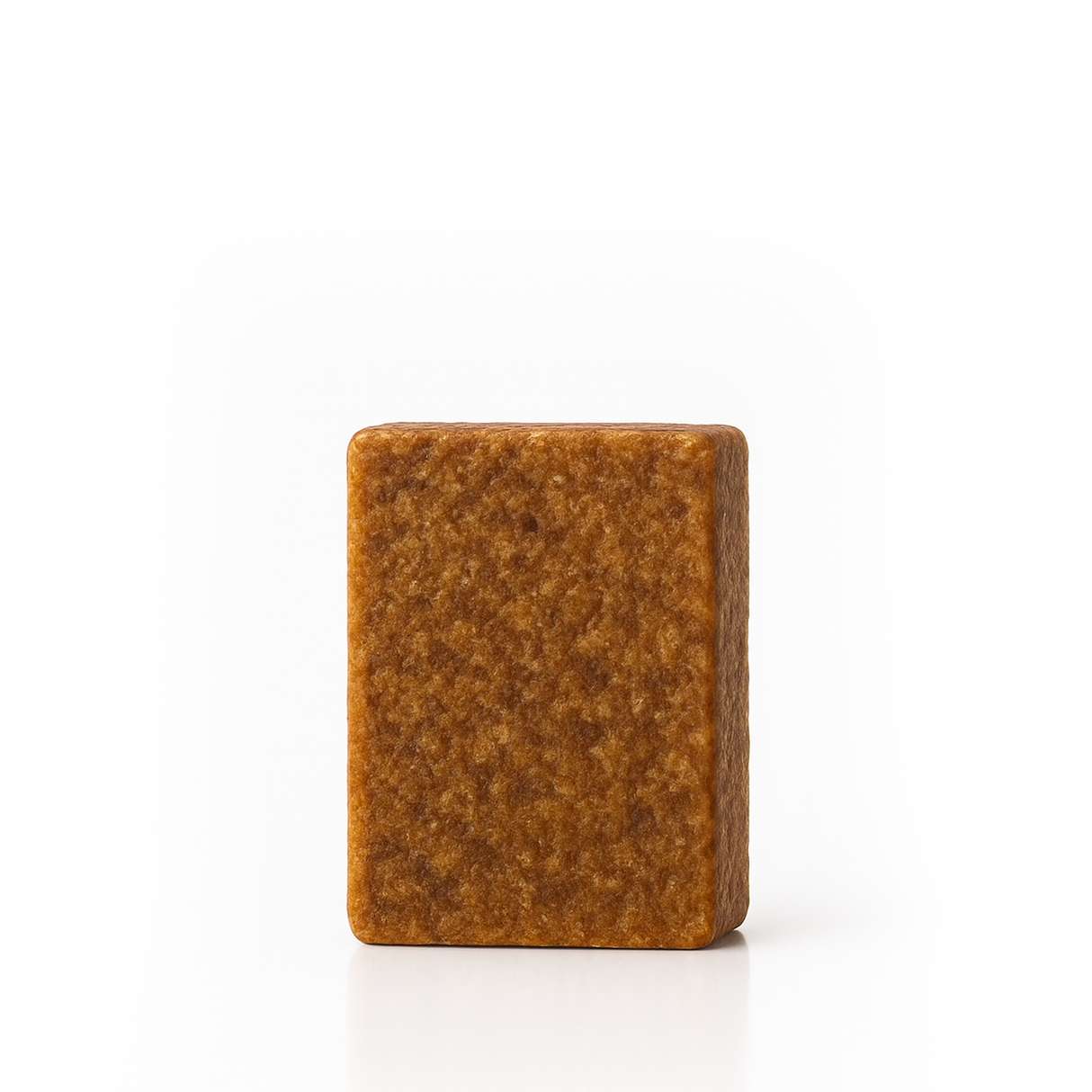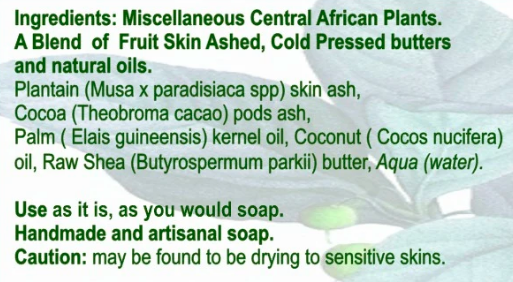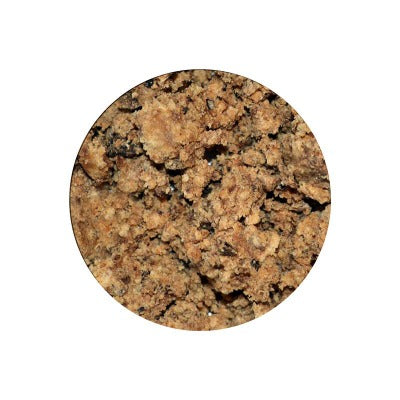Shea Butter African Black Soap
Shea Butter African Black Soap is backordered and will ship as soon as it is back in stock.
Description
Description
Shea Butter African Black Soap Base
- Naturally antibacterial: African black soap is known to help remove imperfections on oily or combination skin as well as acne-prone skin. African black soap helps clear blackheads, pimples and dark spots. It is a deep detox and provides a gradual improvement.
- African black soap is a gentle exfoliator: clearing clogged pores of excess oil, accumulated impurities and dead skin cells. It softly promotes skin regeneration.
- African black soap has a Skin drying effect: that helps degrease the skin and dry acne.
- It makes an excellent shaving foam: it softens the epidermis and helps fight ingrown hair and clears razor burns.
SHAMPOO: use 1 to 2 times a month as a clarifying shampoo (to strip your hair clean of products build-up). You can use the soap as it is or use the liquid black soap you may have made.
EXFOLIATOR BODY SCRUB / INGROWN HAIR/ RAZOR BUMPS. As well as being a deep cleanser, African black soap has natural exfoliating properties meaning that a soft massage of the skin will suffice. Always lather up the soap in your hands first, using the foam only when applying on your face.
IDENTIFICATION
Name: AFRICAN BLACK SOAP BASE
Composition: Miscellaneous central African plants. Plantain skin ash, cocoa pods ash, palm kernel oil, coconut oil, raw shea butter, aqua
SKU code: BN-BLS-0200
ORIGIN: Ghana
QUALITY: 100 % blend pure and natural botanical complex oil.
STORAGE CONDITION: Store in a cool dark place
INDICATION
100% vegetal soap for;
- Combination and oily skin types
- Overall skincare
- Face and body wash
Our unique African Black Soap is handmade by women in Ghana.
Following the classic and ancestral recipes of true soap making they use only plants collected from nearby fields and forests as well as pure, raw vegetable oils.
In the same tradition soap making that brings us Aleppo soap, Marseille soap or Castile soap, our true African Black Soap is a 100% vegetable soap.
Widely recognized and used for its cleansing, exfoliating and restorative skin properties, our soap has a crumbly and soft texture of the true, original handmade African black soap.
HOW IS AFRICAN BLACK SOAP MADE?
It is a lengthy process, overtaken by groups of women of all ages, taking turns to churn and mix the natural ingredients. The traditional black soap process starts by preparing all-natural potash with the ashes of plantain banana leaves and cocoa pods mixed with water. Palm kernel oil, Coconut oil and Shea butter are added and, the mixture is heated and stirred on wooden fires for a day until the correct consistency is achieved. The soap is left to cool and cure in the open for several more weeks.
The naturally crumbly appearance of our traditional African black soap is due to the fact of its high percentage in pure vegetable oils, making it very pliable and soft to the touch. Contrary to many manufactured black soap bars, no chemical ingredients are added at the end of the process to harden it. The soap makers usually just store their production into pots or shape it into a rough brick. Whoever needs it, simply takes a chunk of the soft crumble, and uses it.
PROPERTIES
KNOWN PROPERTIES
- Natural antibacterial: African black soap is known to help remove impurities on oily or combination skins or acne-prone skins. African black soap helps clears blackheads, breakouts and dark spots. It deeply detoxifies and provides a gradual improvement in over all skin texture.
- African black soap is a gentle exfoliator, clearing clogged pores of excess oil, accumulated impurities and dead skin cells. It softly promotes skin regeneration.
- African black soap has a Skin drying effect that helps degrease the skin and to help dry acne.
- It makes an excellent shaving foam, it softens the epidermis and helps fight ingrown hair and clears razor burn.
INSTRUCTIONS OF USE
FOR OILY AND COMBINATION SKIN TYPES AND FOR ACNE PRONE SKINS.
Our African black soap may come as a novelty to some, but to many people in the Central, East and West regions of Africa, it has been well-known and used for many years because of its benefits with skin conditions such as acne and other skin concerns.
USES: You can use the soap as it is, or you can dissolve a chunk in water and make a liquid black soap to use at your leisure.
Take a small piece of soap to crumble and knead it into a ball under running water. Then, lather as you would with any other soap. Note that this soap has a bite to it. Do not leave the soap to sit for long on your skin. Lather, then rinse well, and moisturize. African black soap will leave your skin squeaky clean. Moisturizing well, is an inescapable part of your cleansing routine with this natural soap - Use a good body butter (raw shea butter, African body butter, or Moringa oil) or moisturiser to complete your cleansing routine.
FOR SHOWERING OR BATHING: Use every day on your body, morning and night, as you would with other soaps for your daily hygiene.
FACE: Use 2 to 3 times a week on the face (oily skin) to help clear acne or other skins imperfections. Apply just the foam to your skin and consider leaving it on the skin for about 2 minutes before rinsing it off.
SHAMPOO: use 1 to 2 times a month as a clarifying shampoo (to strip your hair clean of product build-up). You can use the soap as it is or use the liquid black soap you may have made.
EXFOLIATOR BODY SCRUB / INGROWN HAIR/ RAZOR BUMPS: As well as being a deep cleanser, African black soap has natural exfoliating properties meaning that a soft massage of the skin will suffice. Always lather up the soap in your hands first, using the foam only when applying on your face.
CAUTION
CAUTION: The following information/ caution applies to all artisanal or homemade soaps, who use a classic mixture of ash and vegetable oils for the saponification reaction. And as a precaution, before introducing any new product to your routine, always perform a patch test.
A note to our first-time users and users with sensitive skins
Natural in its composition, African black soap has an alkaline pH around 8.5. Applying alkaline soap to the face and body promotes a slight exfoliation, as well as dehydration.
If you are a first-time user, have sensitive or very reactive skin, you might experience redness, tingling in reaction to the soap. This irritation after the use of traditional soap is related to the characteristics of the soap, but most of all, to the way it is used, especially on the face.
Do not apply the soap directly to the face. Make it foam between your hands and apply only the foam, massage gently without rubbing. Rinse thoroughly with fresh water, dry and then apply a good moisturizer, such as a carrier oil, butter or whipped shea butter.
African black soap may work on some skins as a natural peeling agent. If you do break out within the first 1-2 weeks of using the soap, this is normal. It means your skin is detoxing and will soon adjust.
You may experience tingling or a burning sensation on acne areas, minor cuts, and grazes. As with other traditional pure soaps, this is normal.
Always avoid getting the soap in your eyes.
Avoid rubbing the skin with raw black soap, especially on delicate facial skin.
Avoid using this soap if you do have known allergies to palm kernel, coconut oil, or shea butter.
A thin white film may appear on top of the soap crumble if it is left exposed to the air and uncovered. As a rule, break and use only small portions of the soap at a time, and keep your tub closed.
Store in a cool, dry place away from light.
Keep out of the reach of children and pets.
As a general rule, always perform a skin patch test before using any product for the first time.

Shea Butter African Black Soap is backordered and will ship as soon as it is back in stock.






